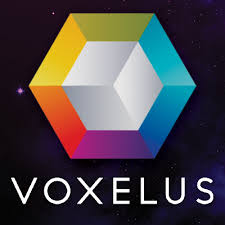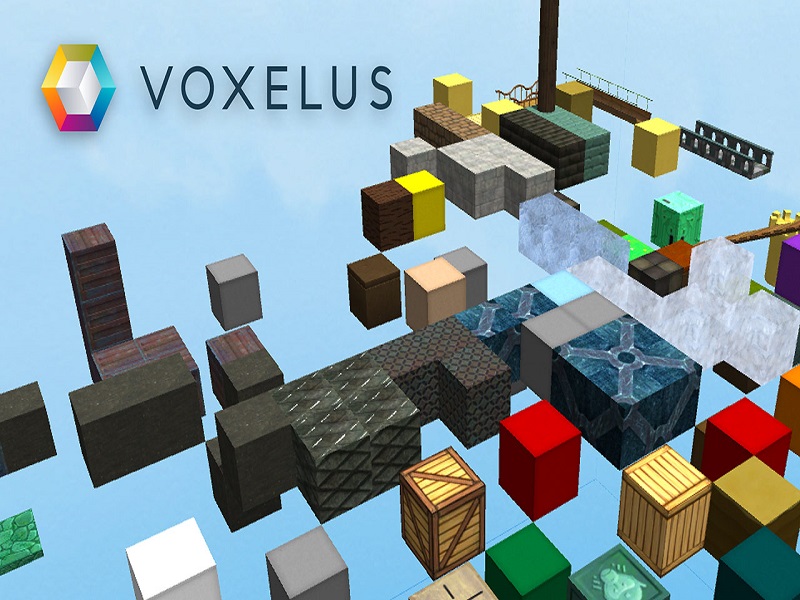Virtual reality is an artificial environment that is created with software and presented to the user in such a way that makes it look as a real environment. The virtual reality industry is expanding faster than ever as new investments are being made to support future VR-based applications. The industry is now making big efforts to develop new approaches and new tools to improve the usability and allow anyone to explore the full potential of this new technology.
Also read: Bitcoin 2015: A Year in Review
Virtual Reality also seems to be the perfect place to use virtual currencies and now two companies are trying to bring digital currencies and virtual currency together to start a whole new niche of development.
Uphold, a Cloud-based financial service and Voxelus, a virtual reality-based platform, have announced a partnership to enable Voxel users to purchase Voxels (VOX), which is the official currency of the virtual reality content creation platform. By using an Uphold account, Voxelus members will now be able to purchase Voxels directly from their Uphold wallet with no fee costs associated. Uphold also allows VOX to be moved, converted, held and traded as any form of digital currency. Voxels are designed to be used for the purchase, sale, payment and settlement of all content, products, services and awards within the Voxelus platform.
Cloud-based financial service and Voxelus, a virtual reality-based platform, have announced a partnership to enable Voxel users to purchase Voxels (VOX), which is the official currency of the virtual reality content creation platform. By using an Uphold account, Voxelus members will now be able to purchase Voxels directly from their Uphold wallet with no fee costs associated. Uphold also allows VOX to be moved, converted, held and traded as any form of digital currency. Voxels are designed to be used for the purchase, sale, payment and settlement of all content, products, services and awards within the Voxelus platform.
Halsey Minor, Voxelus Founder and CEO told Bitcoinist:
“Since I am the founder and majority shareholder of Uphold and co-founder and majority shareholder of Voxelus, this allows me to combine the best innovations from both companies.”
Bringing Digital Currency and Virtual Reality Closer
Voxelus is a virtual reality-based platform that allows for its users to play virtual reality games, easily create content and share it without having to know how to code.
Halsey Minor, Voxelus Founder and CEO says:
“Virtual currencies arose from in-game currencies. That’s where the ideas came from. Our goal was to create an in game currency that could create a real ecosystem where people creating cool content for the game can get paid in money that can actually buy things in the real world.”
The platform is trying to strengthen the ties between the two technologies and understands that both industries can benefit from each other. Besides the Internet of Things, these two industries are expected to go on full growth for the next years.
Minor stresses:
“The next 10 years is all about FinTech and VR. Two of the largest industries in the world: TV and banking & finance are going to get disrupted. Honestly, what could possibly be more exciting to watch than that, happen!”
Digital currency and Virtual reality – the perfect synergy
Halsey Minor also considers that VR and digital currencies are two new industries that are still giving its first steps and can learn from each other:
“There is no reason that virtual worlds cannot have their own currency, tuned to their own needs. Soon, virtual worlds and real ones will start to converge and one can expect things like money in the real world to have their virtual counterparts in VR. If there was ever a great place for a virtual currency, it’s clearly a virtual world.”
Founded in 2015, Voxelus is a revolutionary platform that allows  anyone to create Virtual Reality games, experiences and virtual spaces without having coding skills. The platform consists in three basic fundamentals: Content creation, Game Play, and a Voxelus Marketplace, where creators and users can negotiate virtual reality content and games inside the Voxelus ecosystem, with Voxels. Voxelus also supports real-time multiplayer and is compatible with both Oculus Rift and the Samsung Gear. The system resembles Second Life, as content designers are also rewarded for their content with an in-game currency – the Linden dollar.
anyone to create Virtual Reality games, experiences and virtual spaces without having coding skills. The platform consists in three basic fundamentals: Content creation, Game Play, and a Voxelus Marketplace, where creators and users can negotiate virtual reality content and games inside the Voxelus ecosystem, with Voxels. Voxelus also supports real-time multiplayer and is compatible with both Oculus Rift and the Samsung Gear. The system resembles Second Life, as content designers are also rewarded for their content with an in-game currency – the Linden dollar.
Voxelus members can buy VOX directly on Uphold using bitcoin, bank transfer, credit or debit card, and hold VOX safely and securely in their Uphold Wallet for free. Voxelus is scheduled to fully launch before April 2016, and currently, Voxels are only accessible via beta presale only.
With this partnership, the two companies become pioneers in a cooperation that will certainly bring a lot of innovation for both industries.
What do you think virtual reality can do for digital currency? Let us know in the comments below!










